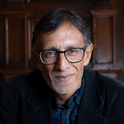According to Wordsworth the world is too much with us; "getting and spending," he says, "we lay waste our powers." He reminds us that we need opportunities for reflection-a place apart, to think and to enquire. One might say that Sunday afternoons offer individuals a prosaic remedy for what Wordsworth laments: a chance to step aside from exigencies to consider the larger matters.
Societies likewise need their places apart, and for the same reasons. The reflective enterprise is not divorced from practicality; it offers a calm space to seek ideas, solve problems and make discoveries. What Sundays are to individuals in these respects, universities are-at least in part-to societies.
Or so they should be. They were not always so, and are at some risk of ceasing to be so, especially in the humanities, where the effects of new ways of financing universities is hastening changes that are undesirable-making it harder to realise the ideal of a liberal education.
British universities discovered on 19th December how they performed in the current research assessment exercise, whose aim is to rank university departments by research quality. The rankings guide Britain's four higher education funding councils in allocating resources. The aim is to help the universities' paymasters ration money.
The idea of a research assessment exercise is, relative to its purposes, a good one. Given that resources are limited, a basis is required for sharing them. And the exercise has some clearly good effects, among them the upsetting of anecdotal rankings of universities by identifying centres of excellence in unexpected places.
But the exercise has flaws. By further rewarding good institutions, it entrenches the divide between good and bad ones. Departments with an eye to the ratings tend to appoint established researchers with proven records, rather than younger, unpublished candidates. As good departments attract money, so they attract better faculty and brighter postgraduates. The less good lose in all these respects, and the system becomes more two-tiered. In the US there is a big difference between teaching-only colleges and universities with prestigious research centres. It might be that, even in a wholly publicly funded system, this is the best way to ration resources; but if so, an honest step in that direction is preferable to Darwinian attrition.
The concern discussed here is more general: by its emphasis on research, the funding councils promote a conception of the university which ignores aspects of its raison d'?tre-moving the university (to extend our metaphor) from Sunday afternoon into Monday's rush hour; and so compromising its value.
The problem is well illustrated by contrasting the councils' emphasis on research with Cardinal Newman's view, championed in The Idea of a University (1873), that universities are not places of research but of teaching. Their purpose, he wrote, "is the diffusion and extension of knowledge rather than the advancement; if its object were scientific and philosophical discovery, I do not see why a university should have students." The councils' emphasis is markedly different from Newman's stress on the liberal cultivation of intellect. They define research as "work of direct relevance to the needs of commerce and industry, as well as to the public and voluntary sector," aimed at producing "artefacts, designs, materials, devices, products and processes." There are just two words in their lengthy definition that Newman would recognise: "scholarship" and "ideas." The emphasis is on visible return on investment.
Few would now agree with Newman that a university's only purpose is education. But virtually all would agree that it remains a core activity; and they would add that good research and good teaching need each another-because the teacher who does not enquire merely rehearses a curriculum, and curricula go stale without enquiry; and the enquirer who does not teach does not transmit his skills to new generations seeking to take enquiry further. It is the combination of the two pursuits that makes a university a special place.
But the recent balance has gone against education. Student numbers have grown hugely in recent years, with no increases in staff, who have therefore to balance heavier teaching loads against funding-centred anxiety to do more research. Between the two arms of the pincer, quality is the first juice to be squeezed; and since funding is conditional on research, the juice is squeezed from teaching. And so one of the university's principal endeavours falters-a process already so advanced that some colleges at Oxford question whether their cherished tutorial system, the key to the excellence of their pedagogy, remains viable.
But this is only the obvious point. The changes being wrought on to the university ethos by the way it is now costed run deeper. Here one needs to recall some history. The earliest of the medieval universities, such as Salerno, Bologna and Padua, came into existence to teach law, theology and medicine. Their purpose was a practical one; medieval societies required professionals in those fields. The papacy, to maintain orthodoxy, placed restrictions on which universities could teach theology. The university of Paris was one of them, but-characteristically, perhaps-it concentrated on metaphysics and became the great centre of philosophical debate for its time. From there the violent controversy between nominalists and realists spread like fever to universities elsewhere in christendom, paralysing enquiry and bringing the first phase of university history to an ignominious end. By the late Renaissance many of the medieval foundations had decayed. Those that survived became mere schools; John Donne went to Oxford at the age of 12, and in the 18th century his university conducted an examination in Hebrew consisting in one question: "What is the meaning of 'Golgotha'?"
The royal societies were the homes of research and scientific advance in 19th century Britain. When Darwin returned from his Beagle voyage he reported to the Royal Geological Society, not to a university. Dons in their universities were not expected to undertake original enquiry; they taught a few classic texts, and dined well. The moribund, quasi-clerical state of the universities owed much to this fact. It was in Germany in the 18th century, first at Halle and then Berlin, that a new style of university was born, spreading first to the US in the late 19th century, and finally to Britain in the 20th. The new institutions combined teaching and research, especially the teaching of postgraduates. Germany invented, America enthusiastically adopted, the PhD; when, to the disgust of many British dons, it arrived here, it occasioned comedy-Wittgenstein, at the age of 40, submitted his Tractatus Logico-Philosophicus to Cambridge for a PhD, and it was "examined" by GE Moore, who wrote in his report: "This is a work of genius; but it otherwise satisfies the requirements of a PhD."
But in this movement from school to research institute the Newman conception-of a university as a place of intellectual cultivation-barely survived. And what would be the response if one now repeated Newman's claim that universities exist to expand the outlook, educate the tastes and refine the sensibilities of their students? The response would be that insofar as these aims of liberal education remain valuable, they are far from the chief goal, which is to produce engineers and chemists, and progress in engineering and chemistry. "What is the real worth in the market of the article called 'a Liberal Education,'" such a responder might ask, "on the supposition that it does not teach us definitely how to advance our manufactures, or to improve our lands, or to better our civil economy; or again, if it does not make this man a lawyer, that an engineer, and that a surgeon; or at least if it does not lead to discoveries in chemistry, astronomy, geology?" These are Newman's words (1857) to describe the "utilitarian" view he opposed.
Newman's contrast between the utilitarian and intellectual attitudes contains too much generalisation. Research is, rightly, here to stay; and it is expensive, especially in science; so questions about cost are appropriate. A contemporary Newman might better complain that the wrong kind of accountancy militates against open enquiry, the aleatory kind that might yield fascination only or a new technological revolution. Most of this century's scientific advances stemmed from intellectual curiosity, not a desire to patent.
But Newman was right to warn of the utilitarian threat to liberal education. The task of providing liberal education belongs chiefly to the humanities. Research-scholarship is here the correct term-is unquestionably part of a good don's responsibility in the humanities. But the unremitting emphasis on research has ill effects. Good work still gets published; but the industrialisation of scholarship also results in much rubbish and more mediocrity. Genuine, unfettered, unpressured scholarship, fostered by debate with colleagues and students, and tested by peer comment-such is the ideal. Before assessment exercises, the best did it, and others did not; now almost everyone is made to do it, with predictable results. Coteries of dons write in impenetrably specialist codes for internal consumption only, in hundreds of journals and monographs. (Peccavimus omnes.)
This increasing industrialisation of academic life, with its tendency to produce Casaubons-"scholarly and uninspired, ambitious and timid, scrupulous and dim-sighted"-has exacerbated the difference between scholars and intellectuals, a difference which has always existed, but which was once far less pronounced. Most scholars are academics now, and not all academics are intellectuals; hence the problem for liberal education in Newman's sense. For if providing liberal education remains part of the university's task, the need remains for scholars who are also intellectuals-as creative, inspired and engaged in the connections between their callings and the wider world, as are the members of that main body of intellectuals who choose literature, the arts, journalism and life outside the university. In the new climate of research ratings, the cultivation of intellectual virtues, and the organic rather than forced pace of enquiry, is discounted. So the intellectual scholar, a person occupying a place apart, is a rarer creature now, even though there are many more universities. And that is because the universities are no longer genuinely Sunday places in the social fabric, fostered for the value they might produce, and permitted to be answerable to their own high standards as communities of minds. By industrialising the university and measuring it by the same criteria as govern Monday's world, the idea of a place apart, for reflection and the cultivation of intellect, becomes increasingly lost to view.












